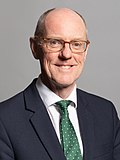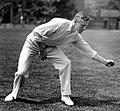
The following is a list of some notable Old Bedford Modernians who are former pupils of Bedford Modern School in Bedford, England. At the school, alumni are known as OBMs. [1] The Old Bedford Modernians' Club was founded in 1892. [1]
Contents
- Academia
- Actors, directors and entertainers
- Adventurers, aviators, exiles and prisoners of war
- Architecture, art and design
- Armed forces
- Air Force
- Army
- Navy
- Industry and commerce
- Journalism
- Law
- Literature
- Medicine
- Music
- Public office
- Home
- Overseas
- Religion
- Sport
- Art
- Athletics
- Chess
- Cricket
- Football
- Hockey
- Rallying
- Rowing
- Rugby
- Rugby fives
- Swimming
- Notes
- References

































